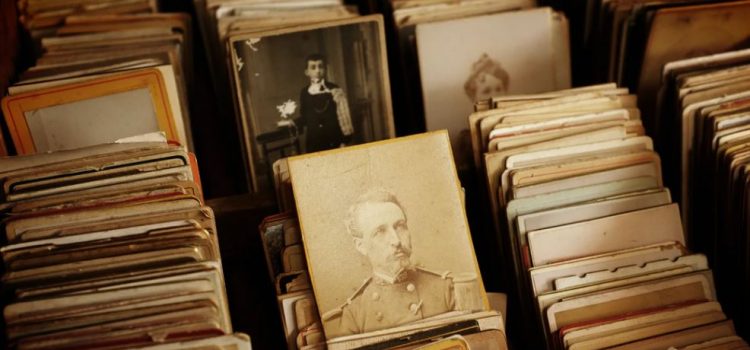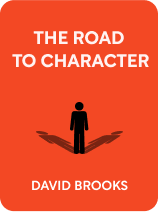

This article is an excerpt from the Shortform book guide to "The Road to Character" by David Brooks. Shortform has the world's best summaries and analyses of books you should be reading.
Like this article? Sign up for a free trial here .
Who are the characters in The Road to Character? In what ways do these historical figures show the importance of selflessness?
In his book about morality, David Brooks outlines the achievements of historical figures that were only possible because of selflessness. Had these historical characters been as narcissistic as people in society are today, many great achievements wouldn’t have happened.
Continue reading to learn about the historical characters in The Raod to Character.
Historical Figures in The Road to Character
Shooting selfies on vacation. Posting Facebook updates on our kid’s graduation from pre-school. Garnering awards and promotions to add to our LinkedIn profiles. Guess what, America? We’ve become self-obsessed. In David Brooks’s The Road to Character, the New York Times columnist suggests we take a good hard look at ourselves and remember that we weren’t always so narcissistic.
Brooks outlines the moral shift that took place after World War II when we transitioned from honoring humility, self-discipline, and public service to worshiping at the altar of “the Big Me.” He also reminds us that our current self-focus isn’t even making us happy. To help us recalibrate our moral compasses, Brooks details the lives of war heroes, civil rights activists, advocates for the poor, writers, and deep thinkers who’ve tackled the work of building moral character, then outlines a 15-point plan to help us live more virtuous—and ultimately happier—lives.
The historical characters in The Road to Character are:
Dorothy Day
Founder of the newspaper The Catholic Worker and advocate for the downtrodden during the Depression era, Day became a better person by admitting her flaws. In her younger years, she suffered from depression and alcoholism, but she used the Christian concept of grace to turn her life of sadness into a life of service. Through deep devotion to her religion, she learned to embrace her own suffering and let it guide and strengthen her character. Her personal struggles became a force for good.
Takeaways: To find salvation, devote yourself to a cause that gives meaning and purpose to your life and learn to find the value in your own mistakes and flaws.
A. Philip Randolph
One of America’s most prominent civil rights organizers and activists, Randolph worked to end racial discrimination in employment and organized the first predominantly Black labor union in 1925. His dignified manner, impeccable manners, and quiet strength made him a role model for future civil rights activities. He emphasized civil disobedience and nonviolent protests like sit-ins and pray-ins over shouting or violence.
Takeaways: Achieve self-mastery and behave with dignity and decorum in all situations. Peaceful protest and nonviolence can be more powerful than violent revolt.
George Catlett Marshall
The Army general who helped to lead America through World War II and created the “Marshall Plan” that rebuilt Europe was repeatedly passed over for military positions he coveted. A deeply reserved and private person, he never “blew his own horn,” even though it might have helped his career. He learned to deny himself for the benefit of others and to not allow jealousy to derail him. As a wartime general, he was known for his great dedication to his troops and to the Army as an institution. His quiet, dignified leadership led to him winning the Nobel Peace Prize in 1953.
Takeaways: Sacrifice your individual desires for the betterment of a larger institution. Exhibit a reserved, humble demeanor.
President Dwight Eisenhower
The general who commanded the Allied invasion of France in World War II and later became an American President was brought up in a strictly disciplined household. His mother taught him self-restraint and self-discipline, which Eisenhower badly needed to reign in his fiery temper. Eisenhower used his childhood lessons to sustain him through many career disappointments. By exercising patience and managing his internal anger, he eventually achieved personal and political success.
Takeaways: Don’t act on every emotion that you feel. Self-restraint leads to a better, more successful life, especially for people with passionate dispositions. Great leaders lead with balance and moderation—they make big changes gradually and incrementally, rather than in one startling swoop.
Frances Perkins
The U.S. Secretary of Labor from 1933 to 1945 and the first woman to be appointed to a President’s cabinet, Perkins is known as “the woman behind the New Deal.” She was called into service through a life-changing event—at age 31, she walked out of a Manhattan tea party to witness the Triangle Shirtwaist fire, one of the most famous factory fires in American history, in which 146 garment workers perished. The experience led her on the path to become a crusader for workers’ rights. As she moved through her career in public service, she became even more deeply dedicated to her cause while simultaneously supporting her husband and daughter, who both suffered from bipolar disorder.
Takeaways: Seek your true calling and figure out how you can best serve your world. Sacrifice your individual desires for a greater purpose.
St. Augustine
The 4th-century theologian learned to reject worldly pleasures and surrender himself to God and grace. Augustine was a classic overachiever who found his many successes unfulfilling, so he went on a search for meaning. Augustine’s “Confessions” are a long meditation on the perils of sin, pride, and selfishness, in which he finally determines that even by becoming a bishop, continually studying the Bible, and praying for divine wisdom, he cannot attain perfection. He finally chose to humble himself and admit to his innate flaws and was then able to revel in God’s grace.
Takeaways: Understand that we cannot trust our own desires because we are all born sinful, and our individual desires always lead us astray. Self-pride makes us think we control our own lives, but we don’t. Only God is in control, and by surrendering to His grace, our struggles will become easier.
George Eliot
Novelist George Eliot (pen name for Mary Anne Evans) learned to be a better person by opening herself up to selfless love. Her decades-long relationship with partner George Lewes changed her from someone who was childlike, self-indulgent, and needy to a mature adult who was able to do the difficult work of writing soul-searching fiction. She paid a huge price for her relationship—Lewes was technically still married to another woman, so the pair were ousted from polite society—but that sacrifice helped her define her sense of morality and take agency for her own life.
Takeaways: Love has a redemptive power, and loving fully and being fully loved increases your ability to be your best self. Also, it’s important to define your own moral code even if it defies society’s conventions.
Samuel Johnson
A brilliant writer who made major contributions to English literature in the 18th century as a poet, playwright, essayist, moralist, literary critic, biographer, and editor, Johnson suffered from physical maladies and depression throughout his life. He rescued himself through deep self-exploration, moral inquiry, and feverishly hard work. To combat his insecurities and his fear of a demanding and punishing God, he filled his diaries with self-criticism and vows for self-improvement. Through his lifelong physical and emotional suffering, he learned to have great compassion for others.
Takeaways: Every human struggle is a moral struggle. We can never become perfect human beings, but we can build our character by constantly striving for self-improvement.

———End of Preview———
Like what you just read? Read the rest of the world's best book summary and analysis of David Brooks's "The Road to Character" at Shortform .
Here's what you'll find in our full The Road to Character summary :
- How the world has become "me-focused" rather than "we"
- An analysis of eight historical figures who selflessly contributed to the greater good
- A 15-point plan to help you live a more virtuous and happy life






